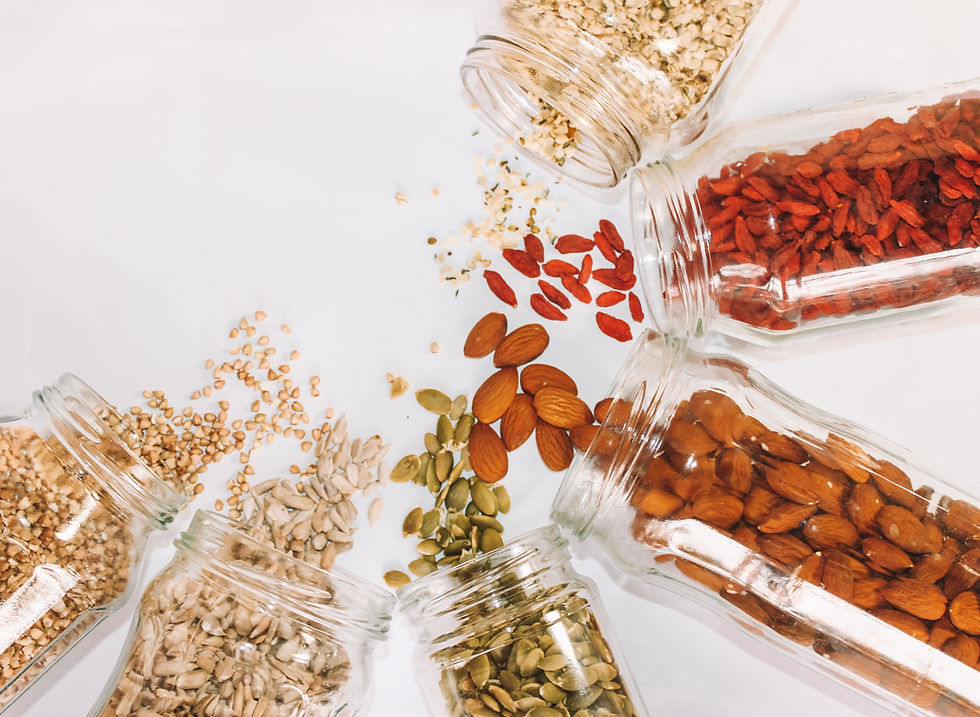How important is magnesium for athletes inside?
- Mareike

- 31. März 2022
- 3 Min. Lesezeit

Magnesium is probably one of the first minerals that comes to mind when you think of fitness. However, hardly anyone knows how essential magnesium really is for athletes and how it can improve athletic performance. We have the facts for you!
Magnesium has numerous functions Magnesium is a vital mineral: It is present in almost all body cells. About 30% of the magnesium balance in the body is stored in the muscles. The mineral has numerous functions: It is required for aerobic (= with oxygen) and anaerobic (= without oxygen) energy production. At the same time, magnesium is involved in building the body's own protein and plays an important role in muscle contraction and relaxation. The mineral is just as important for the development of bones and teeth. In addition, magnesium is involved in the activation of hundreds of enzymes.
How important is magnesium for athletes * inside? Studies confirm that the need for magnesium increases with increasing activity. Links have been confirmed between high levels of magnesium in the blood and improved muscle performance, such as greater leg strength. This means that you can improve your performance if you pay attention to an adequate intake. What happens in the body? According to studies, magnesium seems to lower the lactate level in the blood. Lactate is produced as a metabolic product, especially during intense physical exertion. If this accumulates, muscle work is restricted. The result: You tire more quickly. In addition, magnesium deficiency and physical activity increase oxygen consumption and heart rate. The mineral also plays a key role in strengthening the immune system. It acts partly as a true antioxidant - this strengthens your defenses and protects against diseases

An increased magnesium intake can be useful According to the German Society for Nutrition (DGE), healthy adults should introduce 300 to 350 mg of magnesium every day. You can usually meet this need with a balanced diet. If you are active in sports or do a physically demanding job, the situation is different: Considerable amounts of magnesium can be lost through sweat. This has to be balanced. However, the magnesium requirement is individual and should be discussed with a sports physician. This also increases the need for diarrhea and stress. How can I determine if I'm getting enough magnesium?
These can be symptoms of a magnesium deficiency
leg cramps
dizziness
indigestion
fatigue
palpitations
headache
If you experience the symptoms mentioned above, you should definitely consult your doctor.These are foods rich in magnesiumIn general, a regular intake of magnesium through food is better for athletes than a one-time intake of a magnesium supplement. A balanced diet provides us with (almost) all the necessary nutrients that the body needs. But which foods provide a particularly large amount of magnesium?
Sunflower seeds (395 mg/100 g)
Pumpkin seeds (402 mg/100 g)
Sesame (347 mg/100 g)
Linseed (350 mg/100 g)
Cashew nuts (270 mg/100 g)
white beans (140 mg/100 g)
Chickpeas (115 mg/100 g)
Rolled oats (139 mg/100 g)
Chard (81 mg/100 g)

Good to know:
Mineral water also contains varying amounts of magnesium. You can find out more about this from the nutritional information on the bottleMagnesium supplements - yes or no?
If your doctor recommends taking a supplement due to a magnesium deficiency, it is important to pay attention to the dosage. A maximum of 250 mg of magnesium should be taken in the form of dietary supplements per day. Magnesium has a laxative effect, and higher doses can cause diarrhea.
Conclusion: A sufficient supply of magnesium is essential for athletes and can usually be covered by a balanced, varied diet. However, if you train a lot, an increased intake (through magnesium supplements) can make sense. Competitive athletes preparing for a competition should make sure they start taking it a few weeks beforehand.

